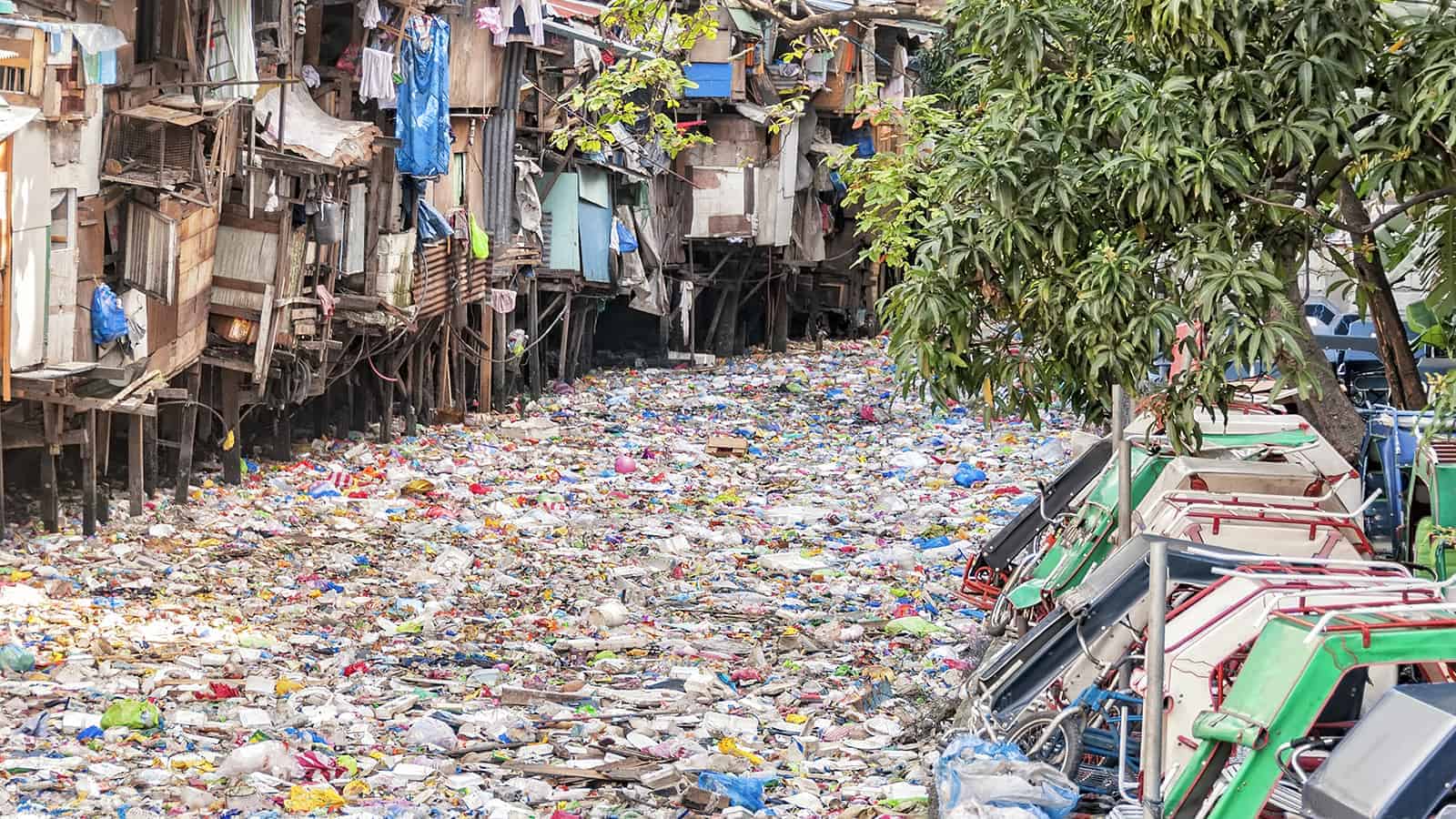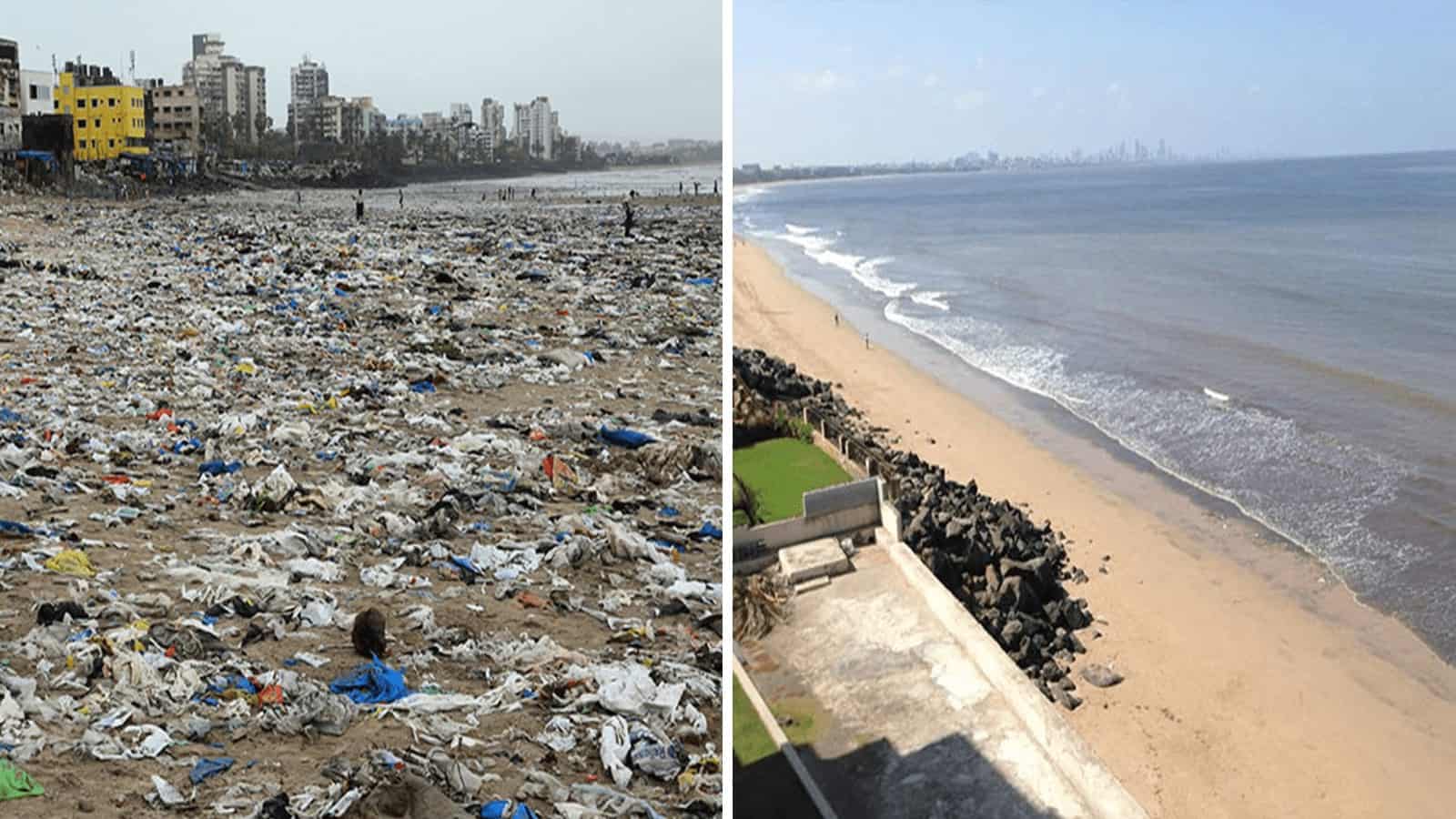Most people tend to think that making a significant difference in a lake, river or ocean requires a lot of resources, money, time, connections, and a lot of people working with you. They seem to have this image that it requires breaking the law somehow, or perhaps completely sacrificing your livelihood and family.
Yet, making a difference can be as simple as being “that person” – that guy who saw a problem, saw a solution, and started by picking up one piece of trash at a time.
Afroz Shah, a lawyer from India, was that guy and is choosing to continue to be that guy. He pioneered the clean-up of Versova Beach in Mumbai and now has set his sights on the Mithi River in Mumbai.
Who is Afroz Shah?
Afroz Shah is an Indian lawyer who in 2015 made a decision to clean up Versova Beach in India. He started with an 84-year-old friend of his, Harbanash Mathur. They were saddened and frustrated by the tons of trash that had accumulated on the beach and decided to do something about it themselves. They started picking up the trash one piece at a time. About 6-8 weeks into the pickup, people started asking to help after watching them work. Over time, he spent time knocking on doors and asking for volunteers to help in his cause. Together, they collected over 4,000 tons of waste on a 2.5 km beach over a period of three years.
In 2016, he was recognized by the United Nations as the “Champion of the Earth.”
His goal wasn’t just the cleanup. He understood that without teaching people how this needs to be maintained, the mess would merely return. His actions not only taught the volunteers the importance of not throwing trash on the beach, but the effect it has on marine life. He was able to get the attention and awareness of not only the volunteers themselves, but the children of the volunteers and also their government.
He also has plans to clean up the forest, which is the beach’s first line of defense from storms washing debris down. Shah also hopes to inspire other groups to initiate their own clean up groups. Ultimately, his goal is to leave an impact throughout the world. He wants every country to consider how plastic and debris affect land and creatures alike and to make changes regarding how trash is discarded.
The first reward he and his volunteers received was to witness the return of about 80 to 90 Olive Ridley turtle hatchlings on the beach for the first time in 20 years.
Now, Afroz Shah has set his sights on the Mithi River.
The Mithi River
Mithi is one of the oldest river systems which runs through Mumbai. Eighteen kilometers long, this river consists only of sewage. Most of it – 93% – is domestic waste while 7% of it consists of industrial waste, according to a 2015 study.
Every year this river floods, carrying its sewage to the people of Mumbai who live near its shores. If it does not rain, then the sewage sits in the river, attracting mosquitoes which carry malaria and dengue.
In a land as hot as India, being near a water source is valuable. Currently, there are more than 1.5 million tenements (or 15 lakhs of tenements, using Indian measurements) who live on either side of the Mithi. They have no garbage disposal system; therefore, all the human waste and trash is thrown into the river, which eventually flows down to the Arabian Sea. To add to the waste, there are over 1,500 industrial units along the river also getting rid of their waste.
Mithi is not alone in being a highly polluted river in India. According to the Central Pollution Control Board report, half of the rivers in India fall into this category; most are polluted to some extent. While the center government has made an attempt to remedy the situation at Mithi, and a few others, there remains a lack of implementation of the new policies or poor planning, making the efforts fruitless.
Cause(s) of unmanaged waste in India
It wasn’t always this way. In the 1980s, its toxicity was minimal. What changed to bring it to the current toxic levels?
In short, the extreme population growth in a country with diversity in virtually every area – culturally, geographically, socially, linguistically, etc. – led to the river’s current dismal state. In 2013, the population of India was 1.279 billion, up from 1.071 billion in 2001. The actual population alone may not seem as bad until you factor in that most of the population is crammed into newly formed mega-cities. These mega cities have populations ranging from seven million up to 18.4 million. Mumbai itself has over 18 million. For perspective, Los Angeles and its surrounding metro area is just over 18 million, with the city of L.A. having about four million itself and Los Angeles County having over 10 million, as of 2016.
Mumbai has an area of 233 square miles in its city district and 1,681.5 square miles in its metropolitan area. Once again, in comparison, Los Angeles is 503 square miles, and with its metro areas included, has 4,850 square miles of pockets of population within 33,954 square miles of land. Imagine trying to fit the population of Los Angeles metro area into a space equivalent to less than half its current populated square miles.
Local Government Attempts to Change Things
Until the major flood in 2005, the government in Mumbai was doing little to change things. The flood killed over 1,000 people. The government is working on changing the mindset of the people and attempting to put programs in place. Unfortunately, the people seem to find it hypocritical and to no avail. They believe the government is truly out to kill the river rather than fix a major problem. The sewage drains and storm water drains remain connected; huge concrete walls have been installed running the length of the river rather than allowing for natural flow. The authorities blame the pollution on the people who continue to throw waste in the river.
The Mithi River Clean-up Project
Enter Afroz Shah to the scene. After his success with Versova Beach, Mithi River is now his priority. Once again, his sights are not just set on the physical clean up, but also on teaching the people who live along its banks.
He is quoted as saying in an interview with NDTV, “Cleaning the water body is not enough; changing the mindset of the people is the need of the hour. There are nearly 5-6 million slum dwellers residing close to the river. On every visit, we will sensitize them to maintain cleanliness by telling them to reuse and recycle garbage.”
Afroz began his project in November 2018, and within two weeks, he had 25 volunteers who cleaned up four tons of garbage! Sadly, those four tons only equated to 300 meters of a river nearly 18 kilometers long. He then gathered about 60 more volunteers from the Dawoodi Bohras who believe in “holistic cleaning of the environment and the inner self.” In addition to picking up the trash every weekend, volunteers are going door to door to make people aware. They also started a radio campaign informing people of dangers of plastic and garbage in the river.
All of these efforts have equated to 100 more volunteers from slum areas along the river.
After the cleanup, their goal is to deal with the liquid waste. Afroz plans on contacting local sewage treatment plants and have them only release clean water into the river. Amazingly, they have also been given equipment, such as an excavator, as a donation. Others are providing trucks to collect and dump the garbage in appropriate areas.
Conclusion
Afroz Shah has proven many things regarding promoting change. He has shown that a simple act can create a large impact. He has demonstrated that not one person or group is responsible for an issue; if each party takes responsibility for their part, change can happen.
Shah did not waste time pointing fingers at the government. He did not waste time pointing fingers at the people living along the river or the beach. He went out and picked up trash, not knowing if anyone would join him. Shah went out with no other purpose than to clean the beach and the river. Along the way, he was able to educate people. Through that education, people will make different choices – informed choices based on awareness and options.
His long-term goal is to see this change worldwide in utilizing recycling and reusing of products, and for there to be more conscious awareness of the impact plastic and waste has not only on the environment, but on us as a species.
Our future, the creatures on this planet, and our most valuable resources of water and land depend upon us being informed and responsible with our actions. Compassion goes a long way too.


















